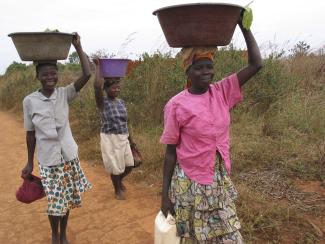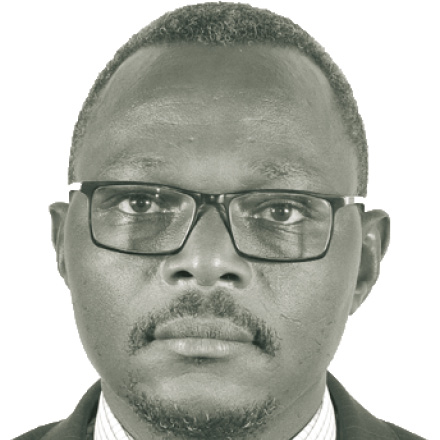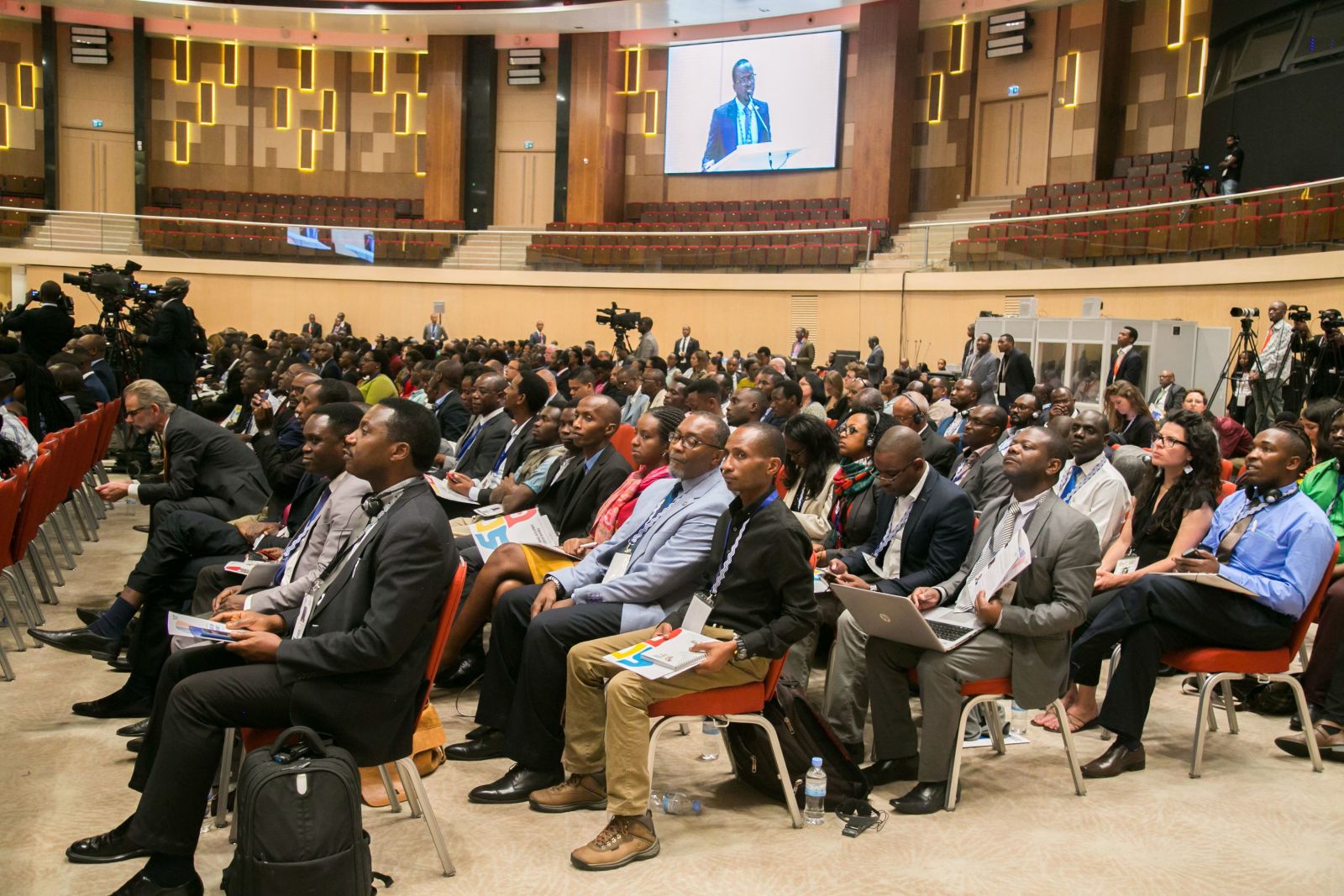Development policy
Too many failures

Whoever can look at Africa’s economic stagnation, poverty, failing governments, generally deplorable education and health-care systems, civil wars and corruption and see it – as Gerd Müller, the Federal Minister for Economic Cooperation and Development, does – as a “continent of opportunity” has lost sight of reality. The same is true, when he calls the masses of unemployed young people with no prospects for the future “a vibrant youth”. Those who fail to understand reality, however, are incapable of solving its problems.
The flipside of such sugar-coating is to find fault with everything we are doing for Africa: we provide too little official development assistance (ODA), we are exploiting Africa, we are still practicing colonialism and dictating unfair trade conditions – all of which have nothing to do with reality.
Such wrong-headed views are widespread in German Third-World circles. With a baffling desire to incriminate themselves, such people assert that European agricultural subsidies have ruined every opportunity for African traders, European trawlers have emptied the waters off Africa’s coasts of fish and our chicken thighs and powdered milk exports have destroyed the livelihood of African farmers. None of that is true.
The narrative that dominates the Third-World scene is: we are the villains who are blocking African development. Such attitudes are common in church circles and faith-based aid agencies as well.
The people who talk this way are inadvertently making themselves accomplices of many African rulers who are indeed exploiting their citizens. Our self-incrimination is music to their ears.
These misjudgements are accompanied by an attitude that is also hindering Africa’s development. No country can develop another; each and every society can only develop itself. Responsibility for this task cannot be transferred to anyone else. Those who do not stick to this insight violate the principle of subsidiarity, which underlies all aid. Violations of the insight have become all too common in the context of ODA.
World Bank President Jim Yong Kim calls his employees “the army that will end poverty”. One of the most famous activists in the “scene”, the singer Bono, adds: “We have the money, we can do it”. In a similar vein, Minister Müller says: “We have the solutions”.
Such statements stem from an assumption of responsibility that infringes upon the principle of subsidiarity. We have no right to rob Africans of the responsibility for their own development. A banal and at the same time outrageous example of this reversal of responsibilities was Müller’s 2016/17 initiative, “More Space for Sport – 1,000 Chances for Africa”. It is an absolutely absurd idea that Africans need our support to set up football fields. Of course, they can do that themselves.
And they can actually do much more than that. For instance, they could build their own roads and revegetate the Sahel, like the Israelis did with the Negev desert. Millions of unemployed people could earn an income from such initiatives. For obvious reasons, however, they have comfortably become accustomed to us assuming too much responsibility, so they do not come up with the idea in the first place.
Because we are doing too much, Africans are doing too little. The wrong attitude on our end has had disastrous consequences: Why should Africans maintain roads and networks for power and water supply? Why should they pursue responsible demographic policies and hesitate before taking on new national debt? According to the logic that dominates ODA, doing so would be dumb. And that is why they don’t do it. The beggar mindset that our attitude is exacerbating and that has long since become entrenched in Africans’ relationships with “donors” is one of the most serious obstacles to development.
Instead of fighting this problem, we keep compounding it. We are making the worst possible mistake under these circumstances by increasing development aid. Africa does not need more money. It needs more self-reliance and initiative, which are being eroded by additional aid. Development policymakers ought to be able to understand this. But obviously they don’t. Whenever Germany gets a little closer to the senseless and destructive goal of spending 0.7 % of GDP on ODA, the Bundestag erupts in almost childlike joy, shared by politicians from left to right. The fact that more money has nothing to do with more development – quite the opposite, usually – is well understood in enlightened development circles, including in the Federal Ministry for Economic Cooperation and Development (BMZ). However, this knowledge has not translated into political leadership.
The degree of irrationality in development policy is high. For instance, it is often boldly asserted that development cannot happen without democracy. However, the enormous “tiger leaps” made by East Asian countries occurred under authoritarian rule. And Rwanda and Ethiopia, whose economic policies are widely praised, are hardly models of democracy. The ideologues who hold sway in the Third-World scene do not let this bother them.
The inconsistencies are many. In policy circles, it became popular at some point to say that Africans, meaning African politicians, must be treated as equal partners. They must be treated with respect, of course. But beyond that, does it really make sense to treat as equal partners the many leaders who have grossly neglected their duties to their citizens? And to demand that these people be given more decision-making powers in large international bodies like the World Bank?
German development policy has largely failed. For example: development requires industrialisation, which is best organised by entrepreneurs. But Africa has hardly any. Therefore it makes sense to convince our entrepreneurs to invest in Africa. So far, they have had next to no involvement in most African countries. In order to change that, the Federal Government is providing financial incentives to German companies to encourage investment in the continent. However, they are putting the cart before the horse, because business leaders are interested in other things: functioning governments, justice systems, infrastructure, development-minded policies, et cetera. We cannot achieve those things; only Africans can. Any policy that disregards this truth is doomed to fail. Semantic gimmicks that emphasise development “cooperation” instead of “aid” and a Marshall plan “with” Africa do not do any good either.
If development aid continues down the same road it has been on for a long time, it will never produce autonomous and sustainable development in Africa.
It is high time to stop playing this disgraceful game and leave Africa alone, so it can rediscover its strengths and harness them for its development.
Kurt Gerhardt is a journalist. Ten years ago, he was one of the authors of the “Bonn Appeal”, a fundamental critique of development policy by experts in the field. In the 1980s, he worked for the German Development Service (DED), which now is part of GIZ, in Niger.
post@kurt-gerhardt.eu
http://www.bonner-aufruf.eu/ (Bonn Appeal)













